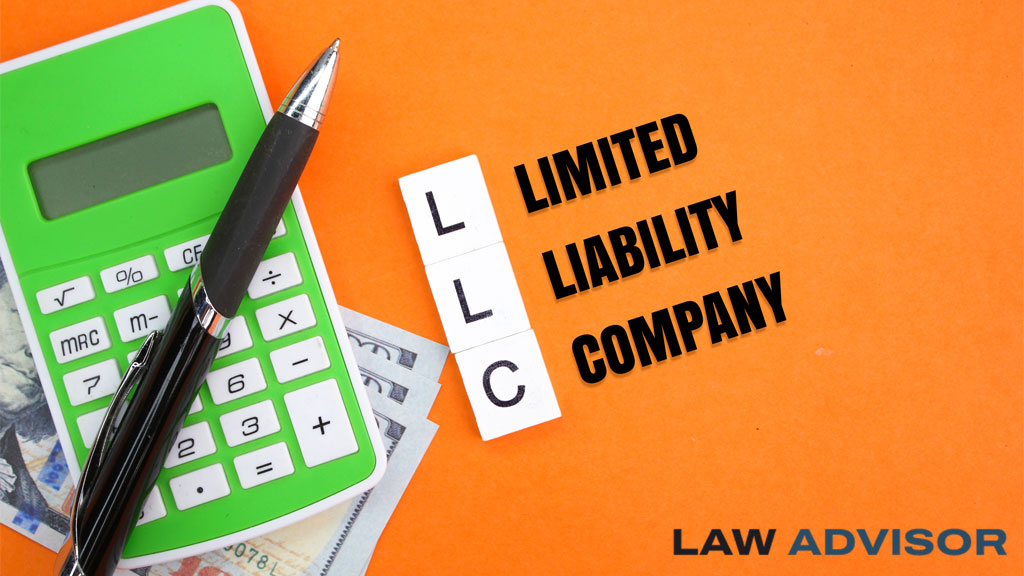Starting a Limited Liability Company (LLC) is one of the smartest moves you can make to protect your personal assets while running a business. Whether you’re a freelancer, small business owner, or startup founder, forming an LLC gives your business legal structure, tax flexibility, and credibility.
In this comprehensive guide, we’ll walk you through how to start an LLC, step by step, with everything you need to know to get it right from day one.
What is an LLC?
An LLC (Limited Liability Company) is a business structure in the United States that combines the limited liability of a corporation with the tax efficiencies and operational flexibility of a sole proprietorship or partnership.
Key benefits of forming an LLC include:
- Personal liability protection
- Pass-through taxation
- Flexible management structure
- Increased credibility with clients and partners
Step-by-Step: How to Start an LLC
1. Choose Your State
LLC laws vary from state to state, so your first step is deciding where to form your LLC. For most businesses, it makes sense to form the LLC in the state where you operate.
✅ Tip: Some entrepreneurs choose states like Delaware, Nevada, or Wyoming for tax and privacy benefits. But unless you’re operating there, it may lead to extra fees and paperwork.
2. Pick a Name for Your LLC
Your LLC’s name must be unique and comply with your state’s naming rules. Most states require:
- The name must include “Limited Liability Company,” “LLC,” or a similar abbreviation.
- It must be distinguishable from existing business names in the state.
- Avoid restricted words (like “bank” or “insurance”) unless you have permission.
🔍 Use your state’s Secretary of State website to search name availability.
3. Appoint a Registered Agent
A registered agent is a person or business entity responsible for receiving legal documents on behalf of your LLC. They must:
- Be a resident of the state (or a company authorized to operate there)
- Be available during normal business hours
You can be your own registered agent, but many choose a service provider for privacy and convenience.
4. File the Articles of Organization
Also known as a Certificate of Formation or Certificate of Organization, this document officially creates your LLC. You’ll file it with your state’s business filing agency (usually the Secretary of State).
Expect to include:
- LLC name
- Address
- Registered agent info
- Business purpose (in some states)
- Duration of the LLC (optional)
💰 Filing fees typically range from $40 to $500, depending on the state.
5. Create an LLC Operating Agreement
An Operating Agreement outlines how your LLC will be run. It’s not required in every state, but it’s highly recommended—even for single-member LLCs.
It should cover:
- Member roles and responsibilities
- Voting rights
- Profit and loss distribution
- Procedures for adding/removing members
- Dissolution process
6. Get an EIN from the IRS
An Employer Identification Number (EIN) is like a Social Security number for your business. You’ll need it to:
- Open a business bank account
- Hire employees
- File federal and state taxes
You can apply for an EIN for free on the IRS website.
7. Register for State Taxes and Licenses
Depending on your business type and location, you may need to:
- Register for state and local taxes (sales tax, franchise tax, etc.)
- Obtain business licenses or permits
Check with your local government and state agencies for requirements.
8. Open a Business Bank Account
Keep your personal and business finances separate by opening a dedicated bank account. This helps:
- Maintain liability protection
- Simplify bookkeeping and taxes
- Build business credit
Bring your EIN, Articles of Organization, and Operating Agreement to the bank.
9. Maintain Compliance
Once your LLC is up and running, don’t forget to stay compliant with state and federal rules:
- File annual reports (if required by your state)
- Pay required state fees
- Renew business licenses
- Maintain a registered agent
📅 Consider using a calendar or compliance service to avoid missing deadlines.
Frequently Asked Questions (FAQs)
How much does it cost to start an LLC?
It varies by state, but expect to pay between $50 and $500 in filing fees. Additional costs may include registered agent services and license fees.
Can I start an LLC by myself?
Yes! A single-member LLC is a popular option for solo entrepreneurs and freelancers.
Do I need a lawyer to form an LLC?
Not necessarily. Most people file online through the Secretary of State or use an LLC formation service.
How long does it take to form an LLC?
Processing times vary by state—some take a few days, others take several weeks. Expedited filing is available in many states for an extra fee.
Final Thoughts
Starting an LLC is a smart way to protect yourself legally and take your business to the next level. By following the steps above, you’ll be well on your way to building a strong foundation for your company.
Remember, every state has slightly different rules—so always double-check with your state’s official website or consult a professional if you’re unsure.
Ready to get started? Explore more free legal guides on Law Advisor Pro and take control of your business future today.









